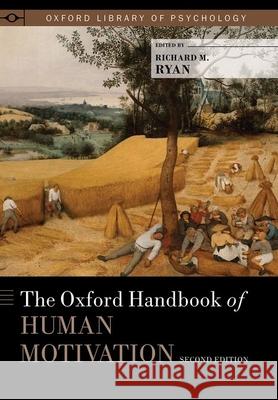The Oxford Handbook of Human Motivation » książka
topmenu
The Oxford Handbook of Human Motivation
ISBN-13: 9780190666453 / Angielski / Twarda / 2019 / 560 str.
Kategorie:
Kategorie BISAC:
Wydawca:
Oxford University Press, USA
Seria wydawnicza:
Język:
Angielski
ISBN-13:
9780190666453
Rok wydania:
2019
Ilość stron:
560
Waga:
1.10 kg
Wymiary:
25.65 x 18.54 x 4.57
Oprawa:
Twarda
Wolumenów:
01
Dodatkowe informacje:
Wydanie ilustrowane











